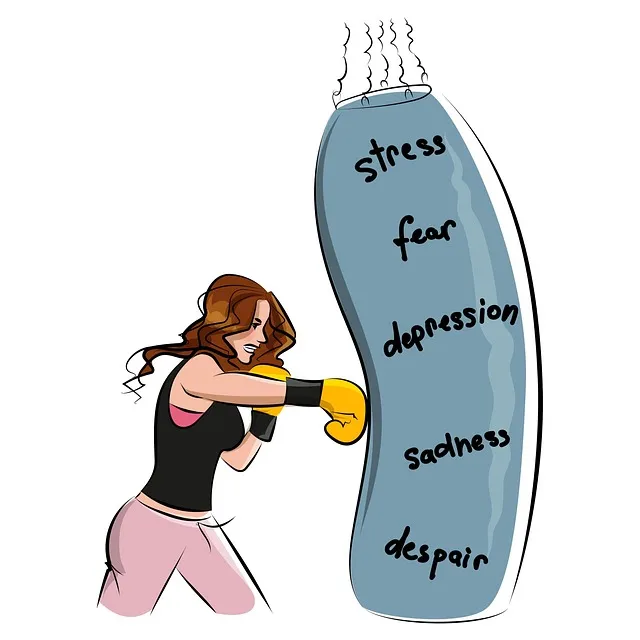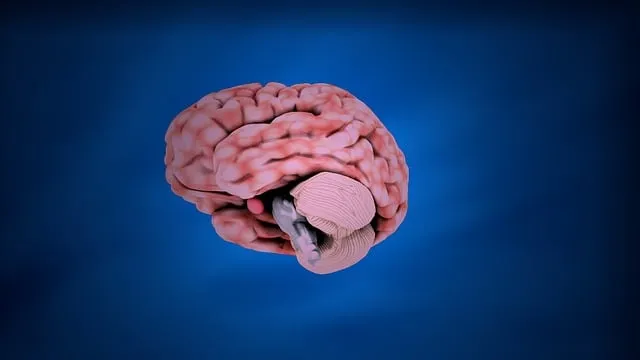Media influence significantly shapes public perceptions of mental health, often perpetuating stereotypes and misconceptions. Organizations like Broomfield Kaiser Permanente (BKP) Mental Health Center play a vital role by offering nuanced narratives based on real-world recovery journeys, challenging typical media portrayals. BKP's holistic patient care, positive impact on mental health awareness, and compassionate environment, reflected in numerous favorable Broomfield Kaiser Permanente mental health center reviews, sets a standard for other institutions. Training programs focused on cultural competency are crucial in reshaping public discourse around mental illness, reducing stigma, and fostering more inclusive environments. By empowering media literacy and encouraging open conversations, we can revolutionize how society views and responds to mental health issues.
Mental illness representation in media significantly impacts public perception and understanding of these conditions. This article explores strategies to challenge negative stereotypes and biases prevalent in popular culture, with a focus on empowering healthcare professionals and fostering accurate narratives. We examine the innovative approach taken by the Broomfield Kaiser Permanente Mental Health Center, known for its positive and realistic portrayal of mental health issues. By enhancing media literacy, we can contribute to a more informed and supportive society, as evidenced by positive reviews of centers like Broomfield Kaiser Permanente.
- Understanding the Impact of Media Portrayal on Mental Health Perception
- Broomfield Kaiser Permanente Mental Health Center: A Model for Positive Representation
- Identifying Stereotypes and Biases in Popular Media Depictions of Mental Illness
- Strategies to Enhance Media Literacy and Promote Accurate Mental Health Narratives
- The Role of Healthcare Professionals in Shaping Public Opinion on Mental Illness
Understanding the Impact of Media Portrayal on Mental Health Perception

The media plays a pivotal role in shaping public perception about mental health. Positive and accurate representation can significantly impact how individuals view and understand various mental illnesses. Unfortunately, traditional media often perpetuates stereotypes, contributing to stigma and misconceptions. This is where organizations like Broomfield Kaiser Permanente’s mental health center reviews become crucial, offering a platform for more nuanced narratives. By providing real-world insights into recovery journeys, these reviews challenge typical media portrayals.
In the realm of mental wellness promotion, understanding media influence is essential. It impacts how people recognize and respond to their own or others’ mental health struggles. This is particularly relevant in today’s fast-paced world where burnout prevention is a growing concern. The power of media lies in its ability to educate, inspire hope, and encourage open conversations about mental wellness. Utilizing tools like the Mental Wellness Podcast Series Production can foster these positive changes, while Conflict Resolution Techniques can help navigate sensitive discussions surrounding mental health issues in media narratives.
Broomfield Kaiser Permanente Mental Health Center: A Model for Positive Representation

The Broomfield Kaiser Permanente Mental Health Center stands as a beacon of hope and positive representation in the media’s portrayal of mental illness. This healthcare facility has garnered numerous positive reviews for its holistic approach to patient care, emphasizing mental health awareness and compassion cultivation practices. By integrating burnout prevention strategies for healthcare providers, the center ensures that both patients and medical staff receive comprehensive support.
The center’s model offers valuable insights into how media can challenge negative stereotypes associated with mental illness. Through its dedication to cultivating a compassionate environment, Broomfield Kaiser Permanente demonstrates that recovery is not just possible but also achievable with the right resources and community support. This approach sets a precedent for other healthcare institutions looking to revolutionize their treatment methods and contribute to a more understanding society.
Identifying Stereotypes and Biases in Popular Media Depictions of Mental Illness

In popular media, mental illness is often depicted through stereotypes and biased narratives that can be harmful and misleading. These portrayals rarely reflect the complex realities of various mental health conditions, leading to a superficial understanding among viewers. For instance, many films and TV shows rely on dramatic or exaggerated symptoms to create conflict, perpetuating the idea that individuals with mental illnesses are unpredictable or dangerous. Such simplifications fail to acknowledge the wide range of experiences and manifestations associated with different disorders, including those managed effectively through treatment.
The Broomfield Kaiser Permanente mental health center reviews highlight the growing demand for accurate media representations. These reviews often emphasize the importance of cultural sensitivity in mental healthcare practice, reflecting a broader trend in the healthcare industry. Training programs focused on enhancing healthcare provider cultural competency are crucial steps towards challenging biases. By promoting emotional regulation and understanding among professionals and the public, these initiatives strive to foster more inclusive and supportive environments for individuals seeking help for their mental health.
Strategies to Enhance Media Literacy and Promote Accurate Mental Health Narratives

Media literacy plays a pivotal role in challenging negative representations of mental illness and fostering more accurate narratives. By equipping individuals with critical thinking skills, we enable them to discern responsible media coverage from sensationalized or misinformed content. This involves encouraging active engagement with media messages, questioning biases, and verifying information from credible sources like reputable news outlets and healthcare professionals, such as those at Broomfield Kaiser Permanente mental health center reviews. Educational initiatives can help people understand the nuances of various mental health conditions, promoting empathy and breaking down stigma.
Promoting accurate representation goes beyond critical consumption; it involves actively contributing to positive change. Encouraging open discussions about mental health struggles, sharing coping skills development resources, and supporting initiatives that highlight inner strength development can significantly impact public perception. Crisis intervention guidance should be readily available alongside these efforts to ensure that those in need can access timely support. Ultimately, fostering a media-literate society is essential for creating an environment where mental illness is portrayed with sensitivity, authenticity, and respect.
The Role of Healthcare Professionals in Shaping Public Opinion on Mental Illness

Healthcare professionals play a pivotal role in shaping public opinion on mental illness, and their influence can significantly impact the way society perceives and supports individuals grappling with psychological disorders. At Broomfield Kaiser Permanente mental health center reviews highlight patient experiences where compassionate care has transformed lives. These reviews underscore the importance of healthcare providers who not only offer treatment but also educate the community about mental wellness. By fostering open dialogues, they contribute to mental illness stigma reduction efforts, encouraging positive thinking and understanding.
Moreover, the professionals’ expertise is instrumental in developing innovative programs like mental wellness coaching. Such initiatives aim to empower individuals to take charge of their mental health, promote self-care, and foster resilience. Through these programs, healthcare centers can bridge the gap between medical care and personal growth, ensuring that patients receive holistic support tailored to their unique needs.
In addressing the challenge of mental illness representation in media, we must recognize the profound impact of accurate narratives. By learning from initiatives like the Broomfield Kaiser Permanente Mental Health Center, which sets a positive example through its inclusive and informed approach, we can identify and dismantle harmful stereotypes. Enhancing media literacy is key to promoting authentic stories that reflect the diverse experiences of those living with mental health conditions. Healthcare professionals play a pivotal role in guiding public opinion, ensuring that discussions on mental illness are based on facts rather than biases, ultimately fostering a more compassionate and informed society. Positive changes in media representation can lead to better understanding and support for those seeking help, as evidenced by the successful strategies highlighted in this article.




